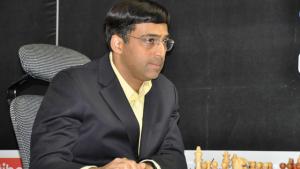
Defense in the Endgame, Part 1
There's no denying that, whatever your strength in chess, in some games you are going to have to cling to some floating debris just to stay over water. Anyone can fall into some opening preparation or make a blunder. Additionally, you have those games where you might enter a slightly worse ending and then hold on with precise play.
It seems to me that saving a draw in a worse ending is easier than winning a better (or technically winning) one. Somehow the goalposts for drawing are wider than the ones for winning in the endgame.
Let us now see some examples of defense in the endgame.
Even the world champion can fall into some opening preparation, and in his game against Alexander Morozevich from the 2012 Tal Memorial, this almost proved decisive. But Magnus Carlsen dug in where most players would simply give up, and despite White's visually-overwhelming position, it was tricky to completely nail Black down. Faced with tricky resistance, Morozevich made a mistake which could only have come from psychological reasons, and in the end it was Carlsen who could fight for the win.
The main problem of defense in the endgame is balancing passive and active defense - knowing when to hold the position stubbornly and when to switch to concrete variations to make a permanent escape. We see this in the above game - Black, tied up almost completely by the doubled rooks on the seventh rank, remains passive except for a few well timed jabs - 25...a5 and 29...h5. It's sort of like fighting a bear. You play dead and cover your neck until the situation gets too serious, then you jab him in the eye or in the snout.

The next game took place in a tournament in Zagreb, 2011. I was playing well in that tournament, but in this game I got in some trouble after the opening. After the game, I noticed that had it lasted any longer, the hotel restaurant would have closed and we wouldn't be able to eat dinner. I mentioned this to someone and later I heard that my opponent remarked that, had he played better, it wouldn't have been a problem. This was probably true, but there is not a clear win for White that I can see and, scrappily, I managed to escape. Again it was a combination of passive defense and switching to exact calculation.
RELATED STUDY MATERIAL
- Read GM Bryan Smith's previous article Sicilian Endgames: The Lines;
- Watch IM Daniel Rensch's spirited fight in Live Sessions; A Resourceful Defense - Part 1!;
- Learn the ballance between attack and defence in Chess Mentor;
- Dazzle your opponent after spending time in our Tactics Trainer;
- Looking for articles with deeper analysis? Preview our magazine: The Master's Bulletin.






